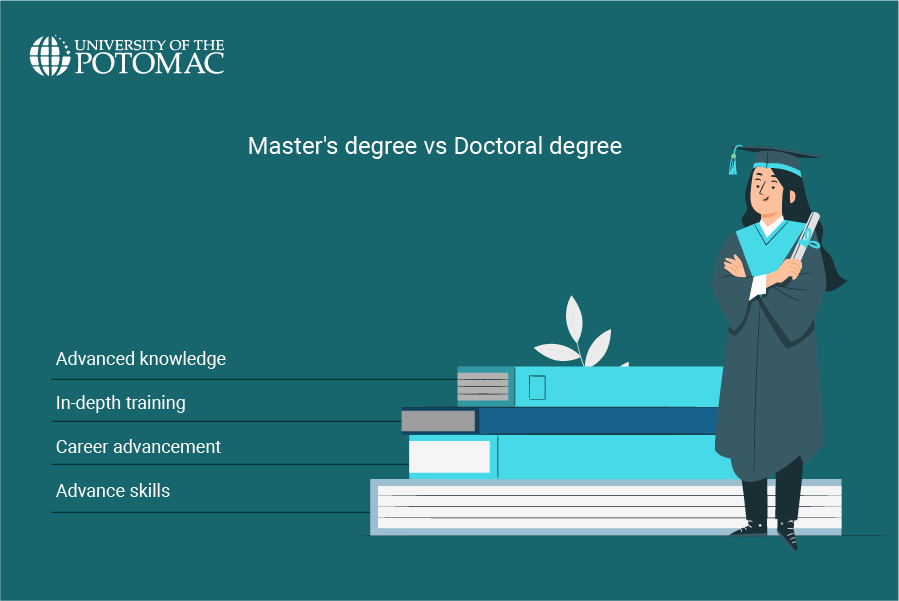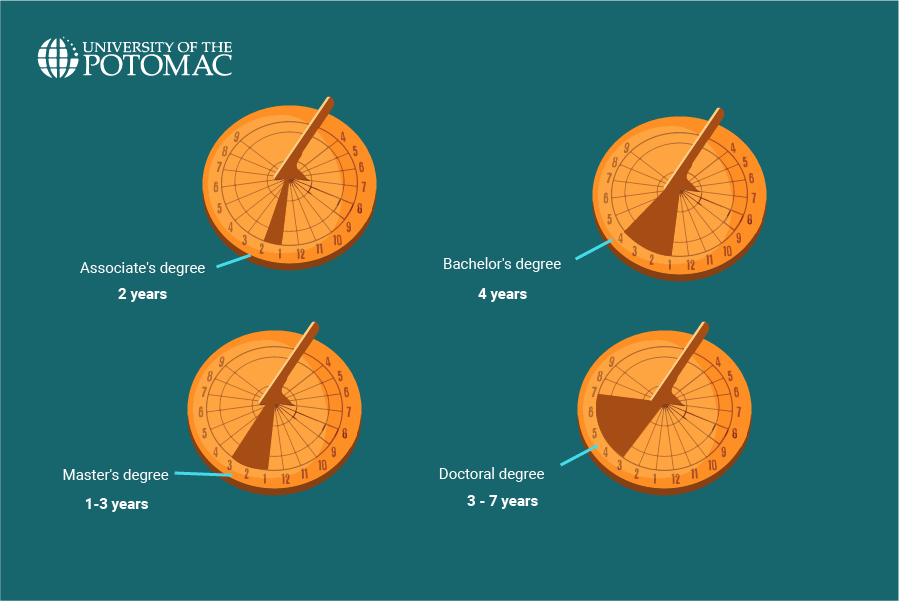Undergraduate and graduate degrees have different levels of specialization, curriculum structure, and course workload, among others. Continue reading to learn more about what makes these two education milestones so different yet so important.
The path to success isn’t set in stone; however, the credential you carry nearly always has a positive impact on your future. After completing your undergraduate studies, should you enter the job market or pursue graduate school?
The decision between an undergraduate vs. graduate degree can be overwhelming. Therefore, understanding the key differences between these degrees can help you make the best decision for your future.
So, what are the key differences between undergraduate and graduate degrees? Read on to learn more!
What Is an Undergraduate Degree?
An undergraduate degree is the first milestone in your higher education journey after high school. It is a foundation of knowledge for your field of study. This credential includes associate degrees and bachelor’s degrees.
An associate’s degree is a two-year academic program that provides you with an educational foundation that can be used as a stepping stone toward a bachelor’s degree or a professional specialization. It typically serves as a qualification for certain entry-level positions.
On the other hand, a bachelor’s degree provides you with a foundational education within your field of study. Through the four years of studying, you obtain knowledge on general topics and from specific subjects within your major. This credential is often the stepping stone to kickstarting your career, sometimes earning you more advanced entry-level positions.
Benefits of pursuing an undergraduate degree
An undergraduate degree comes with a wealth of advantages. Firstly, it provides better job prospects and prepares you for a more specialized career. The U.S. Department of Education projects that by 2070, 70% of U.S. jobs will require education or training beyond high school.
Secondly, an undergraduate degree can lead to a higher salary. According to the National Center for Education Statistics (NCES), bachelor’s degree holders earn an annual wage of $66,600, whereas high school diploma holders earn $41,800. Thirdly, an undergraduate degree allows you to design an education around your interests. This means you can turn your passion into a fulfilling career.
Lastly, whether you earn an associate’s or bachelor’s degree, pursuing an undergraduate degree can help you expand your network and build meaningful relationships with professors and peers.
Potential career opportunities with only an undergraduate degree
An undergraduate degree opens up a whole new world of career paths. For example, with an associate degree, you can pursue a job as a dental hygienist, veterinary technician, paralegal, court reporter, physical therapy assistant, preschool teacher, etc.
Likewise, a bachelor’s degree opens doors in different industries, such as:
- Healthcare: Physical therapist, registered nurse, and respiratory therapist
- Education: Teacher, school counselor, and social worker
- Business: Economist, business manager, sales manager, accountant, and social media specialist
- Technology: Web developer, video game designer, software developer, and operations analyst
- Engineering: Electrical engineer, civil engineer, and mechanical engineer
What Is a Graduate Degree?

Upon completing your undergraduate studies, you have two options: get a job or continue your studies. In this case, you would pursue a graduate degree which signifies your advanced knowledge within a field of study. Thus, graduate studies involve in-depth training and specialized instruction which can get you either a master’s degree or a doctoral degree.
A master’s degree is an esteemed credential that allows you to build high-level knowledge in a specific area of study and develop advanced skills applicable to the trade. It sets you on the path to career advancement and prepares you to pursue further education, such as a doctoral degree.
A doctoral degree, on the other hand, is the highest academic credential you can earn. It typically involves an in-depth study of a topic, culminating in the production of original knowledge researched over the years of studying.
Advantages of pursuing a graduate degree
During your graduate studies, you also get the chance to conduct research that can lead to significant findings and new ideas in your area. As such allows you to become a leader in your field.
It can help you advance your career by giving you the skills and abilities necessary for higher-level jobs and leadership roles. It can also help you develop your previous education, allowing you to change your career or seek a new career direction.
Another significant advantage of pursuing either a master’s or doctoral degree is the higher earning potential. According to NCES data, master’s or higher degree holders, on average, earn $80,200.
Additionally, graduate school exposes you to learning communities, allowing you to build meaningful connections with peers, professors, alumni, and other disciplinary experts. The network you establish during your studies can help you further develop your skills and grasp relevant opportunities.
Potential career opportunities with a graduate degree
As mentioned above, a graduate degree opens doors to new job prospects and career advancement.
Some in-demand jobs that require a master’s degree include:
- Nurse practitioner
- Statistician
- Epidemiologist
- Physician assistant
- Marriage therapist,
- Data analyst, and more
On the other hand, a doctorate degree can help you pursue career paths such as professor, anthropologist, audiologist, chief economist, research scientist, and C-suite executive, among others.
Difference Between Undergraduate and Graduate Degrees
The primary differences between undergraduate and graduate degrees lie in:
- Level of specialization: While undergraduate degrees provide foundational knowledge and skills, graduate degrees offer an in-depth focus on a specific field.
- Curriculum structure: During your undergraduate studies, you’ll take several foundational and general courses, some even unrelated to your major. On the other hand, graduate school coursework is highly specific to the field of study and involves higher-level classes and extensive research projects.
- Course workload: As an undergraduate student, you’ll have to juggle five to six courses per semester, whereas as a graduate student, you’ll have to take only three advanced-level courses. Furthermore, these courses involve more research and reading than undergraduate classes.
- Admission requirements: When applying to an undergraduate program, you’ll typically need a high school diploma or GED. In comparison, you typically need a bachelor’s degree when applying to a graduate program (or a master’s degree if you are applying for a doctoral program).
- Classification of degrees: Undergraduate programs award associate and bachelor’s degrees, whereas graduate programs award master’s and doctoral degrees.
Difference Between Undergraduate and Graduate Students
Undergraduate and graduate students differ. Typically, undergraduate students are in their early twenties, full of energy, and know how to have fun and study simultaneously.
Interested in pursuing a degree?
Fill out the form and get all admission information you need regarding your chosen program.
This will only take a moment.
Message Received!
Thank you for reaching out to us. We will review your message and get right back to you within 24 hours.
If there is an urgent matter and you need to speak to someone immediately you can call at the following phone number:
- We value your privacy.
On the other hand, graduate students typically go back to school after gaining a few years of experience and are generally in their late twenties or early thirties. Therefore, they may have to divide their time between work, university, or even their families, so they may have little time to socialize.
Your motivations and goals as an undergraduate student can differ from those of a graduate student. This means during undergraduate school, your main goal may be gaining a well-rounded education that prepares you for various careers. On the other hand, at the graduate level, your main motivation may be to deepen your understanding of the field and advance in your career.
Another distinction between your time as an undergraduate student and that of a graduate student is that graduate school provides you with more freedom to conduct original research and contribute new knowledge to your discipline.
Although the level of independence as a graduate student is higher, during your studies, you can work more closely with your professors, with them treating you more like a peer than a student.
How Many Years Does Each Degree Take?

Without a doubt, completing a degree is going to be a time commitment. However, the amount of time you’ll be investing in your studies depends on the type of degree.
For instance, an associate degree typically takes two years to complete, while a bachelor’s degree can take four years.
A master’s degree, on the other hand, can require a time commitment of one to three years. Whereas, a doctoral degree typically takes three to seven years to earn.
Remember that the exact duration of these degrees also depends on whether you’re a full-time or part-time student. As a full-time student, you can tackle more courses per semester and complete course requirements much quicker than a part-time student.
Another factor that can affect your time in college is whether you’re enrolled in an accelerated or a dual-degree program. An accelerated program allows you to earn a bachelor’s and master’s degree simultaneously and can take five years to complete. Likewise, a dual-degree program for two bachelors can take five years to earn.
Conclusion
Both undergraduate and graduate education are important stages in your academic journey, providing you with the necessary tools to succeed in the future. While there are many differences between undergraduate and graduate degrees, both provide incredible yet different opportunities.
Ultimately, the decision to pursue an undergraduate or graduate degree hinges on your individual goals, interests, and career aspirations. Talk to academic advisors, job counselors, or professionals who work in the field to make an informed choice. For more information, please call us at +1 (202) 274-2300 and speak with one of our representatives.
Frequently Asked Questions
What should I do if I have a lot of college credits but no degree?
If you have a lot of college credits but no degree, you may be able to use those credits in a bachelor’s program. This way, you may earn your degree in less time than you would when you started from scratch.
How long is a typical college semester?
Generally, a college semester lasts 15 to 17 weeks, including the period for final exams.
What is considered a good GPA?
Typically, a good college GPA falls between a 3.0 and 4.0 scale. However, what is considered a good GPA often depends on the major, as “more challenging” majors often correspond with lower GPAs.










